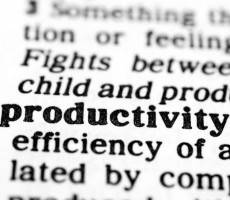June 30, 2016
Lack of leadership development undermines organisational agility 0
 Employers are failing to address weaknesses in leadership development, and this is compromising their organisational agility, according to a report published by Orion Partners. The report, Agile HR: Mindset Not Methodology found that those questioned understood the importance of agility, with 67 percent of HR professionals describing it as “business critical.” Yet despite 59 percent agreeing that the people management practice that has the greatest impact on organisational agility is leadership development, none of the senior HR professionals polled rated their organisations as highly effective at building versatile leaders and 75 percent believed they were no more than moderately effective in this area. Attempts to make their companies more agile with the introduction of flexible working are not being focused correctly either, which the authors suggest is reaping the consequences of failing to sell the wider business benefits of effective HR management.
Employers are failing to address weaknesses in leadership development, and this is compromising their organisational agility, according to a report published by Orion Partners. The report, Agile HR: Mindset Not Methodology found that those questioned understood the importance of agility, with 67 percent of HR professionals describing it as “business critical.” Yet despite 59 percent agreeing that the people management practice that has the greatest impact on organisational agility is leadership development, none of the senior HR professionals polled rated their organisations as highly effective at building versatile leaders and 75 percent believed they were no more than moderately effective in this area. Attempts to make their companies more agile with the introduction of flexible working are not being focused correctly either, which the authors suggest is reaping the consequences of failing to sell the wider business benefits of effective HR management.

































June 24, 2016
Property and workplace experts have their say on the Brexit outcome 0
by Mark Eltringham • Architecture, Comment, Facilities management, Property, Workplace, Workplace design
More →